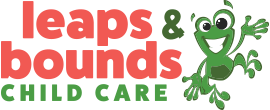When your child is not at daycare, it’s important to spend time reading to them regularly (ideally daily). You want to foster the experience of learning such that they don’t associate learning only with school-type environments, but with the rest of their life as well — playtime, bedtime, etc. A child who does not understand that they are learning at home as much as they are at daycare is being set up for difficulties later on in life.
One of the key benefits of reading to your child is that it improves their understanding of language, behavioral expectations, and helps them learn how to express themselves. When parents read to their children often, it helps provide children the linguistic toolkit they need to describe what they feel and enables them to better express and control themselves when they experience strong emotions.
Unlike when watching TV, children will also be picking up on your cues and tone as you read to them, providing them important information about expectations on how to feel about certain things — e.g. aghast that the princess would run away from the castle; pleased that other rabbits accepted the outcast rabbit; etc. Kids learn through observation and modeling, so when you read to them they are picking up on all sorts of information — from what language sounds like to how you analyze the story and what difficult new words mean.
Reading strengthens children’s social, emotional, and character development, and reduces tendencies towards hyperactivity, aggression, and difficulty paying attention. Reading enhances a child’s ability to pay attention, as it calls for active listening, whereas the television is designed to demand one’s attention with regular hooks, hypnotic imagery, and shocking spectacles.
One benefit you may not have heard before is that it helps you as a parent slow down; reading to your children gets you yourself reading more, putting you in a more patient and open mindset. The pleasure of reading books to children isn’t just on their end — it can be a lot of fun and inspire parents to read more themselves.
Another thing to reflect on is how the material in books is not universally translatable to the screen. The vast majority of stories and information is not available digitally, but remains bound between two covers somewhere. Television and even now the internet are quite strongly regulated, with attention being channeled down certain avenues. If you want your child to be more of a free thinker, with an imagination not simply tied to the zeitgeist, consider reading them stories from different times and with unique perspectives. Doing so will really exercise their imagination as well as help spark a curiosity and thirst for learning.
One thing that is important to remember here is that 89% of kids from ages 6-17 say that their favorite books are the ones that they picked out themselves. So make sure they have a bookshelf available with books to choose from.
Traditionally, good children’s books are didactic. The best children’s books teach kids things without them even realizing it. For example, The Very Hungry Caterpillar by Eric Carle teaches kids about colors, fruit, healthy eating, and hope for the future.

